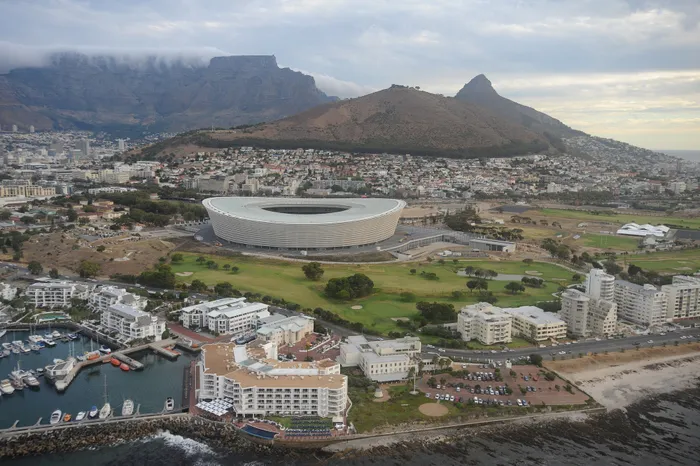
An aerial view of Cape Town's Atlantic seaboard, including Green Point, Green Point stadium, Mouille Point and Table Mountain.
Image: Henk Kruger/Independent Newspapers
The Western Cape continues to punch above its weight, with regard to the value of residential property transactions.
This is according to Lightstone’s residential property market dashboard in mid-2025 for all provinces.
“Despite having a smaller GDP and population than Gauteng, the province delivers outsized returns in property transaction values – a clear sign that investor and consumer confidence remain firmly entrenched,” says Esteani Marx, business development executive at Lightstone.
The comprehensive data, analytics and systems on property, automotive and business assets provider says this confidence is underpinned by strong governance and economic growth.
It says the province topped the 2024 Governance Performance Index (GPI) by Good Governance Africa, which measures municipal performance by province.
Although its GDP is lower than Gauteng’s and only slightly behind KwaZulu-Natal’s, it adds that the Western Cape consistently shows robust growth across sectors such as agriculture, finance, business services-and real estate.
While GDP in the WC is just under 14% (3rd largest) and the province is home to 12% (3rd most) of the country’s people, it accounts for 18% of the volume of property transactions and approaches 31% of the value.
More significantly, though, the value of transactions is just 6% behind Gauteng compared to a 16% volume deficit, and Western Cape’s GDP is just under half that of Gauteng’s.
The HPI is the second highest in the country at 5.67% and this after a period of sustained upward pressure. All in all, the data suggests consumer confidence in the Western Cape is driving the residential property market volume and value upwards, Lightstone says.
The company says Gauteng is still the biggest, though, and South Africa’s economic engine, as it accounted for the largest slice of both property transaction volumes (34%) and values (37%) in absolute terms.
However, percentage comparisons are much closer to GDP at 33% and population (25%) than the WC. Gauteng comes in third in governance and scores poorly in HPI, in 8th place, ahead only of the Free State.
While the data confirms Gauteng is the country’s economic engine and accounts for most people, volume and value of transactions and GDP in percentage terms, its poor HPI score and modest GPI score see it fall short of the ratios the WC records.
Limpopo is currently the hottest province, recording property inflation of 6.82%. This growth is fuelled by strong demand in towns like Hoedspruit and Maruleng, where holiday homes, safari properties, and semi-rural living remain highly sought after.
Although Limpopo ranks lower on transaction volume and value and sits mid-to-low on measures such as population, GDP and governance performance, its distinctive bushveld product has pushed inflation higher than even the in-demand Western Cape.
“Limpopo’s strong performance shows how unique demand drivers such as lifestyle estates, safari-linked developments, and limited registered housing stock can stimulate growth in ways not directly tied to GDP or governance,” says Marx.
Lightstone says it has previously reported that approximately 15% of Limpopo’s population lives in property registered at the Deeds Office, reflecting a huge informal and tribal-land-based housing market that is underserved and under-registered.
This “property drought” limits supply in the formal segment, contributing to inflation as demand outpaces legal and serviced housing availability.
Meanwhile, Siphamandla Mkhwanazi, the senior economist at FNB, says the FNB House Price Index (HPI) accelerated to 4.5% year-on-year (y/y) in August, up from 4.4% in July. He says this is the fastest annual house price growth in over three years and marks the fourth consecutive month of real house price growth.
Looking at the regional performance, he says the Western Cape continues to lead in house price growth, driven by strong demand fundamentals.
Gauteng and KwaZulu-Natal (KZN), previously stagnant, are now gaining momentum, narrowing the gap with the Western Cape and indicating a geographically expanding recovery, he adds.
Independent Media Property
Related Topics: